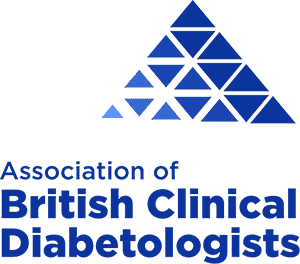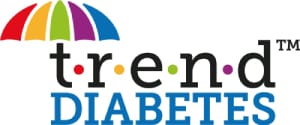WINNER
Virtual Schools Training Package
by Birmingham Women’s and Children’s Foundation Trust
The COVID-19 pandemic forced school diabetes training to be delivered virtually. Birmingham Women’s and Children’s Foundation Trust developed a virtual school training package with competency assessments. They created 50 multimedia, interactive PDF care plans covering all devices, with bitesize videos embedded summarising the teaching and a Google form competency questionnaire. The total number of school staff trained and competent increased from 300 to 410, a 37% increase. Total cost was reduced from £10,050 to £1,660, an 87% cost reduction. These care plans allowed self-paced learning and re-visits to videos at the time of need and are a permanent addition.
Judges’ comments:
“The judges loved the Virtual Schools Training Package project, it was remote training with a difference. They really took in feedback and utilised it to develop the package, providing a lot of cost savings. It was lovely, collaborative working, resulting in great feedback and results. It was also important that it covered a variety of conditions. It quite simply shone!”
HIGHLY COMMENDED
Diabetes Health Matters with Dr Joan St John
by Diabetes Africa
What if medical experts, healthcare professionals, people living with diabetes and their families could be brought together to address the goal of disseminating diabetes knowledge among Black, African, and Caribbean communities to improve their health outcomes? For 10 months, Diabetes Africa and Dr Joan St John, host of the Diabetes Health Matters online event series, set out to do just that: provide an open, safe, virtual place to exchange and learn for communities that were hit hard by the pandemic. With over 3,000 live and on-demand viewers and social media content viewed over 10,000 times, Diabetes Health Matters broke new ground.
Judges’ comments:
“It is very challenging to target hard to reach communities and this entry from Diabetes Africa has done it well. It is a genius concept, really well put together and the engagement spoke for itself, being bigger than anticipated. It was culturally aware, thoughtful and relevant.”
COMMENDED
ComPASSION
by University Hospitals Dorset
University Hospitals Dorset’s diabetes team collaborated with Dorset eating disorders service to provide a multidisciplinary approach to outpatient and in-patient models to support people with type 1 diabetes and a co-morbid eating disorder. This group presents significant challenges with diabetes management, requiring intensive engagement around psychological distress and cognitions. The initiative demonstrated positive outcomes, in terms of psychological and physiological benefits, and guidelines and protocols around the safe in-patient and out-patient management were developed. Engaging with people with lived experience enabled the development of a suite of tools for other teams to support people locally.
Judges’ comments:
“The ComPASSION project was run brilliantly. The application was thorough and well written, with national backing and judges look forward to seeing it rolled out. It showed how vitally important dealing with eating disorders is, collaborating with an eating disorder patient organisation to ensure wider awareness. A great project, really nicely executed.”
FINALIST
Scottish Diabetes Care Quality Dashboards
by NHS Education for Scotland Technology Service
NHS Education for Scotland Technology Service’s Diabetes Care Quality dashboards were developed to monitor quality of diabetes care using SCI-Diabetes, Scotland’s national diabetes electronic patient record. The technology was developed in collaboration with the Scottish Diabetes Group and the managed clinical networks in each Scottish health board. Launched in June 2019, the dashboards are updated weekly and provide a visual summary of the status of diabetes care within each domain of care. They track improvements in quality of care and attainment of nationally-agreed standards. The tool has received excellent feedback and has supported regional and local collaborative projects.
Judges’ comments:
“The Scottish Diabetes Care Quality Dashboards project was a high tech, robust system. The judges liked that patients had access to the data, providing transparency allowing them to know their own results. SCI DC is a very impressive system and certainly makes a difference to quality in care for patients. It is an amazing use of data and genuiinely improved diabetes care in Scotland.”
FINALIST
Diabetes Prevention Norfolk and Waveney
by Norfolk and Waveney
Norfolk and Waveney is a large, rural geography, with high diabetes prevalence. Preventing type 2 diabetes is a priority. A system-wide collaboration was established, improving access to the NHS Diabetes Prevention Programme (NDPP), alongside a quality improvement initiative (QII) improving coding for Non-Diabetic Hyperglycaemia (NDH) and Gestational Diabetes (GDM). Building on methodology developed during the pandemic, 75 practices collaborated in Protect NoW Diabetes Prevention, a data-informed, digitally-enabled programme, connecting multiple agencies, and delivering access to NDPP. A total of 90 practices collaborated in the QII. Over 3,000 NDPP referrals were made and more than 18,000 people with NDH were identified.
Judges’ comments:
“It was clear to see that Norfolk and Waveney’s project had made a concerted effort to give access digitally to hard to reach patients. It had good engagement and was well executed. It was patient-centred, is sustainable and they did exactly what they said they would do.”
FINALIST
Digital Evaluation of Ketosis and Other Diabetes-related Emergencies (DEKODE)
by University Hospitals Birmingham, Sandwell and West Birmingham Hospitals, Walsall Healthcare NHS Trust, University of Birmingham
Diabetes-related ketoacidosis (DKA) is an acute metabolic complication requiring inpatient care. University Hospitals Birmingham, Sandwell and West Birmingham Hospitals, Walsall Healthcare NHS Trust, and University of Birmingham introduced the Digital Evaluation of Ketosis and Other Diabetes-related Emergencies (DEKODE) cloud-based management monitoring system, developed by medical students and junior doctors. It aims to bring uniformity in DKA management through identifying best practices and reducing resource duplication and wastage using data comparison and aggregation. To date, six hospitals across the West Midlands have joined DEKODE. It also trains medical students and junior doctors in quality improvement and diabetes care.
Judges’ comments:
“The judges liked the DEKODE entry, it had innovation, clear collection of data and improvement shown. They felt it was something that could improve complex issues in a hospital, which is actually quite impressive. It was also good to see the use of junior doctors and student nurses being involved, which also helps with education. It clearly improved knowledge for many staff, including those who aren’t diabetic specialists.”














